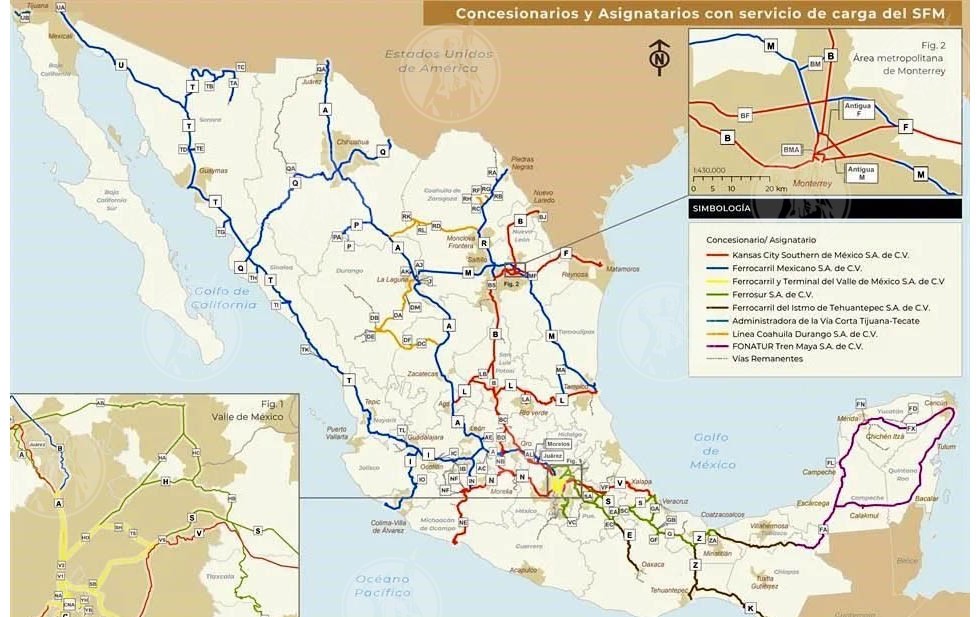Mexico City.– The Secretariat for Infrastructure, Communications and Transport (SICT) has formalized the government’s plan to resume passenger trains on seven routes.
A publication published in the Official Gazette (DOF) has indicated that priority will be given to the provision of public passenger rail services on the concessional public railway communication routes and consideration will be given to the provision of public railway freight services. in their respective concessions.
The routes will be as follows:
1.- Mexico-Veracruz-Cotzacolcos train
2.- AIFA-Pachuca Interurban Train
3.- Mexico-Querétaro-Leon-Azucalientes train
4.- Manzanillo-Colima-Guadalajara-Irapuato train
5.- Mexico-San Luis Potosí-Monterrey-Nuevo Laredo
6.- Mexico-Querétaro-Guadalajara-Tepic-Mazatlán-Nogales
7.- Aguascalientes-Chihuahua-Ciudad Juárez
President Andrés Manuel López Obrador announced the decision earlier in the month prior to November 20, which would affect the transportation division of Canadian Pacific Kansas City (CPKC) and Grupo México.
CPKC said on Friday that it was “committed” to the Latin American country’s government about the initiative and did not expect a “negative impact” of the project on its operation. In addition, he described his desire to assess the appropriateness of providing this benefit through studies.
The resolution published in the DOF gives priority to freight service concessionaires to submit proposals before January 15 and covers six routes operated by CPKC and Grupo México Transportes, except for an intercity train from the capital to Felipe Angeles International Airport (AIFA).
Mexico has a railway network that covers a significant portion of the country, connecting it to the United States and is used almost exclusively for freight service. According to López Obrador, more than 20 thousand kilometers of roads can now be opened to transport passengers.
One of the president’s major projects is the Mayan Railway in the country’s southeast, developed by the armed forces, for which the president has taken control of many infrastructure projects amid heavy criticism.


:quality(85)/cloudfront-us-east-1.images.arcpublishing.com/infobae/BH6NLAQGXJGADFWTENBUV7Z7RQ.jpg)
:quality(85)/cloudfront-us-east-1.images.arcpublishing.com/infobae/3GK63ATFOMFAYNUAQKUL4WUJFM.jpg)

:quality(85)/cloudfront-us-east-1.images.arcpublishing.com/infobae/SJ35ZLSJ5NB4BWVRJPSK74P7AQ.jpg)